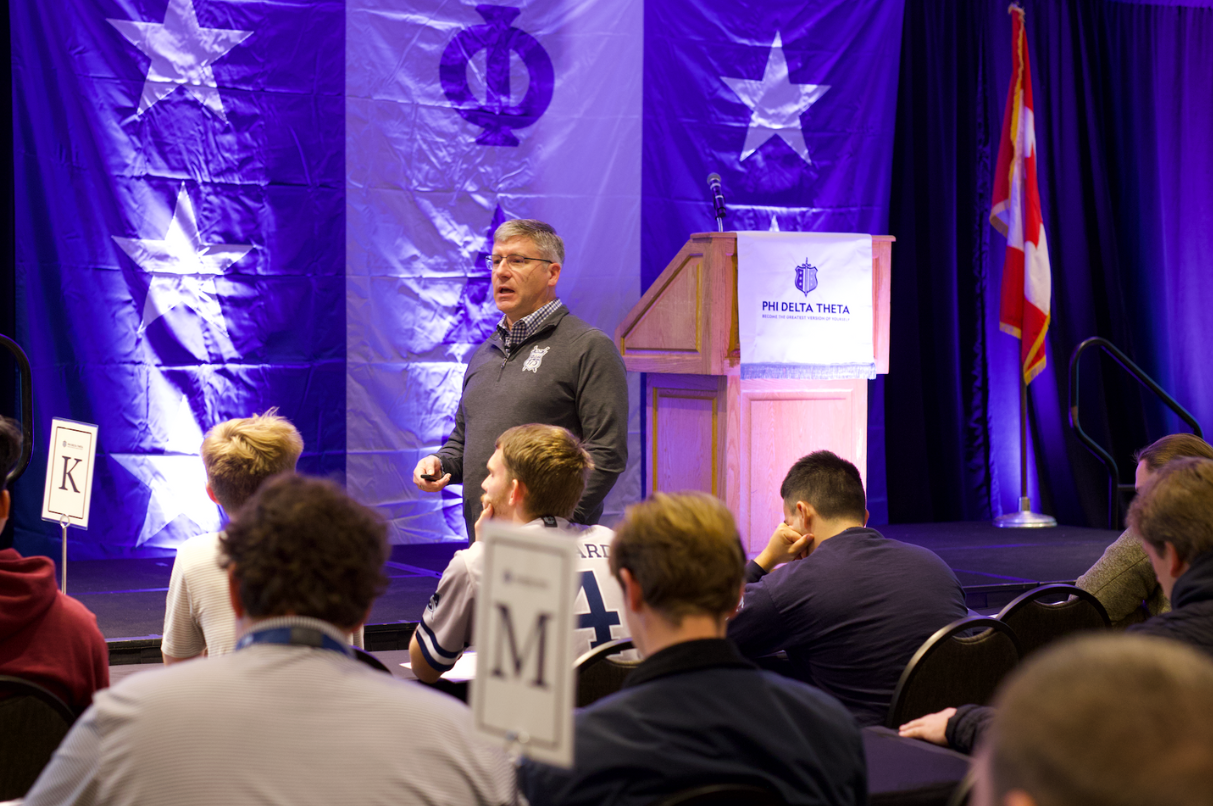By Dr. Gina Lee-Olukoya
We often think of hazing as a secret act that is violent or embarrassing; including some forms of ridiculous buffoonery, or malicious acts of “taking wood” or physical activity. We often think of hazing as a behavior of young immature men and women that becomes commentary of lore during reunion weekends with former classmates. And, we often think of hazing as a time-specific act with no consequences. For many of us, these descriptions have served as rites of passage that too many of our students involved in fraternities and sororities are experiencing. These hazing experiences, which for some have replaced our membership rites, have been used to transition our new members into our society; often have been violent and oppressive and have distorted the goals of fraternal organizations. They have distorted the purpose of our membership processes.
Our pledge activities or new member programs are significant rites of passage that honor the traditions of our founders. Rites of passage are a sequence of events that enable individuals to proceed through stages that ultimately end with predetermined outcomes. Rites of passage connect individuals to organizations, or they can serve to connect individuals to communities. Rites of passage are ritualistic and mark significant events in our lives and are celebrated as we mark our entry into our communities. “Without rituals, there would be nothing to mark this cultural change in status as extraordinary” (Manning 2000, p. 30); and in the context of sorority and fraternity life, rituals are an important processes to mark the entrance into and the end of the experience of our distinctive practices. Rites of passage mark entrances into social roles that have significant meaning to a community. They are elaborate, dramatic, and planned sets of activities that consolidate various forms of cultural expressions into one event, which is carried out through our many interactions. Rites of passage activities that mark the entry into our fraternal communities are excellent venues to transmit our organizational cultures and unique histories. However, what we have seen is practices that mark entry into our organizations marred by hazing rituals that themselves have become the norm, a required rite of passage. Our organizational pledge or new member programs are rites of passage that attribute to members understanding and committing to the ideals of their organization. Additionally, many of our members have found meaning in the rites’ rituals and cultural underpinnings. As a process, membership activities serve as a means to indoctrinate our aspirants/new members seeking initiation into our societies. The underlying objectives and outcomes of our rites of passage serve to connect men and women to the values and practices of the organization. This is important to note because rites are valuable and are significant to the future of our organizations, however, far too many of our members are incorporating hazing practices into our organization’s rites of passage.
Hazing rituals can be violent and exploitive. Many college campuses suggest that hazing rituals, though banned publicly by national organizations and illegal in most states, remains a practice that men and women voluntarily engage in when seeking membership in our chapters. From a certain point of view, hazing is a practice of habit, adherence to tradition, and power and oppression. Freire (2000) argues that oppression is learned, transmitted, and replicated. He also notes that at some point in the course of human interactions, we all assume the role of the oppressor. Exposed hazing rituals indicate that participants are bound in the struggle between power and control. Our members often use our rites of passage as a means to secure and maintain power that allows them to maintain control of our chapters. These members believe that hazing rites are a necessary tool to maintain chapter traditions and customs, and to develop organizational pride and respect. Far too often, these members are the most vocal in our chapters and resist change and evolution. These members view hazing as a rite of passage and believe that it is necessary in order to maintain the system. These members are oppressors and will not easily give up power to change the chapter’s culture.
Eliminating hazing rituals in our rite of passage will be NECESSARY if we want to reclaim our traditions and power from those who would distort the core of our fraternal identities. We must empower each member to take a stand against oppressive hazing acts. Taking a stand for rites of passage experiences that are free from hazing practices will take courage, but it is possible. First, chapters need to recommit to their founding values and find meaning in the rituals, customs and traditions of our founders. The founders are long gone, but their words, work, and passion lives in each chapter that has come after them. Tim Marchel discusses this well that “as human-beings, we have a fundamental need to belong to groups, clubs; to affiliate with those who share our values and beliefs.” We need to embrace our members who seek to not be bystanders and desire meaningful change. Second, we need to GET REAL and have conversations with members about their need to harm, intimidate and oppress their follow brothers. Getting real will take courage to confront our members and challenge them to seek a new path. The reality that research is showing us is that folks joining groups want to find meaning and purpose in the membership process. Some folks say, “Nothing easily gained is appreciated.” That being said, we must take a look at our rites of passage, commit to ensuring that they support the organizational values and have MEANING, not HAZING! Men and women will seek out our organizations only if our rites of passage present them with compelling values to which they can commit and find purpose.
Dr. Gina Lee-Olukoya is the Associate Dean of Students at the University of Illinois at Urbana-Champaign. She is a member of Delta Sigma Theta Sorority and has served her sorority as chapter president and collegiate chapter advisor. Her research areas include hazing in historically African American sororities and application of feminist ideology to the experiences of women in sororities. Gina serves on the Board of Directors for HazingPrevention.Org and director of the Novak Institute for Hazing Prevention.





